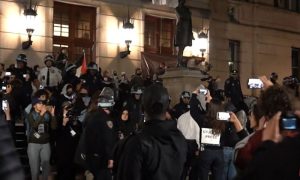WASHINGTON: A prominent advocacy group has condemned the University of Southern California (USC) for canceling the scheduled graduation speech of the 2024 valedictorian, Asna Tabassum, following objections from anti-Muslim and anti-Palestinian extremists.
During a call with USC Provost Andrew Guzman on Wednesday, Ms. Tabassum, a “first-generation South Asian-American Muslim,” was informed that the university could not ensure an appropriate level of security if she delivered her speech due to the volume of security threats and harassment from pro-Israel critics. USC emphasized that this decision was not a judgment on her accomplishments or ambitions but was driven by security concerns.
In response to the cancellation, USC stated, “After careful consideration, we have decided that our student valedictorian will not deliver a speech at commencement. Although this is upsetting, safety must take precedence over tradition. The best way to preserve safety and security on campus is the key concern here.
The May 10 commencement ceremony, which will honor this year’s class of over 19,000 graduates, is anticipated to draw 65,000 attendees to USC’s downtown Los Angeles campus, recognized as one of California’s most prestigious private universities.
Criticism of the cancellation quickly surfaced, with individuals and organizations condemning the decision as an act of censorship rather than protection.
Hussam Ayloush, executive director of the Washington-based Council on American-Islamic Relations (CAIR), lambasted USC’s decision, stating, “USC cannot hide its cowardly decision behind a disingenuous concern for ‘security.’ Asna is an exceptionally talented girl whose achievements in both her extracurricular and academic pursuits make her the perfect and unique candidate for this year’s valedictorian award.”
Ms. Tabassum herself released a personal statement protesting USC’s decision to bar her from addressing the ceremony, expressing shock and disappointment at the university’s abandonment.
Ayloush emphasized that the attacks on Asna were driven by Islamophobia and anti-Palestinian racism, asserting that USC’s cancellation of her speech empowered voices of hate and censorship.
In response to these developments, CAIR called on USC to reverse its decision, restore Ms. Tabassum’s speech, and ensure a safe environment for graduation.
This incident underscores broader concerns about free speech and campus safety, particularly regarding marginalized groups and their right to express views on sensitive geopolitical issues.
CAIR’s advocacy highlights the need for universities to protect students’ voices and uphold principles of inclusivity and academic freedom, especially in the face of external pressures and threats.
The controversy surrounding Ms. Tabassum’s speech cancellation at USC raises critical questions about academic institutions’ commitment to fostering open dialogue and defending students against discrimination and intimidation.
In light of these events, the call for USC to reconsider its decision reflects a broader demand for accountability and adherence to principles of fairness and justice within educational settings.
The stance taken by CAIR underscores the importance of safeguarding free expression and promoting diversity within academic environments, ensuring that all students feel supported and empowered to contribute to meaningful discourse.
As the discourse continues, USC’s response will be closely watched by advocates for free speech and academic integrity, setting a precedent for how universities address similar challenges in the future.






















